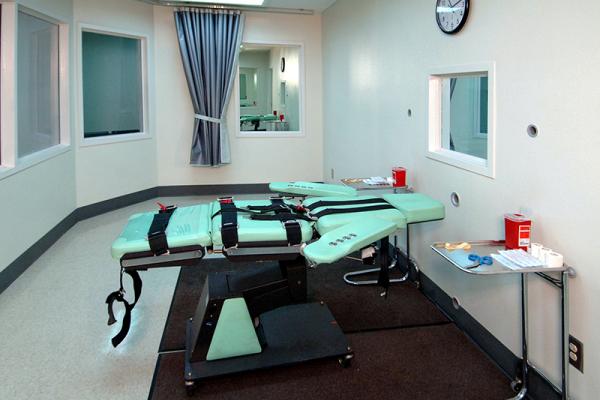When Pope Francis visited the United States two years ago, he spoke out against the death penalty in speeches to Congress and the United Nations.
This week he went a step further, calling for a revision of official church teaching that would make capital punishment “inadmissible.” It was a historic shift given that the death penalty has, until now, been allowed by the church in certain circumstances.
The death penalty, Francis explained during an important speech in the Vatican on Oct. 11, is “contrary to the Gospel, because it entails the willful suppression of a human life that never ceases to be sacred in the eyes of its Creator.”
With these words the pope is also reshaping what it means to be “pro-life.” He is moving it away from primarily opposing abortion and stressing that it means protecting life at every stage, from womb to natural death.
It is in the U.S. where the pope’s words may have the most impact, given punishment by death is still legal in more than 30 states and is supported by close to half of all Catholics. According to a 2016 Pew Research poll, 43 percent of American Catholics support the death penalty, while 46 percent are opposed. And abortion remains a highly polarizing issue.
Among those welcoming the pope’s words was Sister Helen Prejean, whose work on death row was dramatized in the Oscar-nominated film “Dead Man Walking,” with her role played by Susan Sarandon.
“At last, a clear, uncompromising stance of moral opposition to the death penalty by the highest authority of the church,” she told America magazine.
There are many more-traditional Catholics who argue forcefully in favor of the death penalty. Joseph M. Bessette and Edward Feser argue that “for extremely heinous crimes, no lesser punishment could possibly respect this Catholic principle that a punishment ought to be proportional to the offense.”
Defenders of the death penalty on religious grounds also point to the argument from St. Thomas Aquinas, the renowned church teacher, that sometimes it is permissible in order to promote the common good and keep people safe.
According to the Catholic catechism, the death penalty is allowed if it is “the only possible way of effectively defending human lives against the unjust aggressor.” Yet it goes on to say that the times when the death penalty is “absolutely necessary” are “very rare, if not practically nonexistent.”
In the U.S., this is a teaching that finds sympathy not only among conservatives.
A number of liberal Catholics are also uncomfortable with the idea of a church ban on capital punishment, said Massimo Faggioli, a church historian and theology professor at Villanova University.
“The Europe-America divide on the death penalty is deeper than we think,” Faggioli told RNS.
In reality, the pope’s ruling had been a long time coming. Both Benedict XVI and John Paul II condemned its use, although they stopped short of making any change to official teaching.
Francis has now said the catechism should be updated to take into account his predecessors’ interventions and a “change in the awareness of the Christian people.”
In his speech Wednesday to a group of senior prelates gathered in the Vatican, who were marking 25 years since the latest version of the catechism was promulgated, he said the death penalty “is an inhumane measure that, regardless of how it is carried out, abases human dignity.”
The church, he stressed, had made “progress” from the days when capital punishment was used by the papal states — the lands controlled by the papacy from around the eighth century until the late 19th.
“Let us take responsibility for the past,” the pope said. “And recognize that the imposition of the death penalty was dictated by a mentality more legalistic than Christian.”
Throughout his almost five-year papacy, Francis has consistently stressed the importance of God’s mercy, and in particular how this applies to prisoners. Twice a month, on Sunday afternoons, the pope phones inmates in an Argentine prison. And he has said that whenever he visits a prison he thinks to himself: “I, too, could be here.”
His death penalty change is part of a wider vision calling for a justice system focused on rehabilitation rather than punishment. Or as Oscar Wilde said: “Every saint has a past, and every sinner a future.”
The changes on capital punishment might not be the only area where Francis is preparing to evolve teaching. The pope has called for a revision of just war theory, which sets out moral conditions that justify a military intervention. This ancient teaching, which has been revised and updated over the years, is not just used by the church but by many generals who see it as a useful guide on when to resort to force.
In Rome, a senior cardinal, Peter Turkson, has called for just war teaching to be abolished and has said the pope could write an encyclical letter, a major papal document, reorienting the church’s position on the matter.
For Francis, there should be a consistent life ethic — the notion that there is a “seamless garment” to what the church says about abortion, the death penalty, and nonviolence.
By revising the death penalty position, the pope apparently feels he is not merely developing doctrine but also highlighting a deeper Catholic vision of what it means to protect human life.
Got something to say about what you're reading? We value your feedback!






